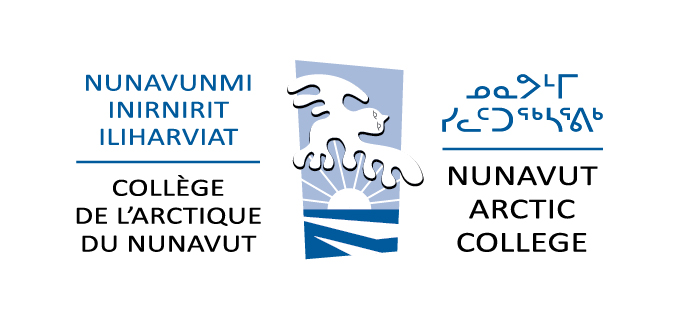NAC wears orange! Orange Shirt Day 2020
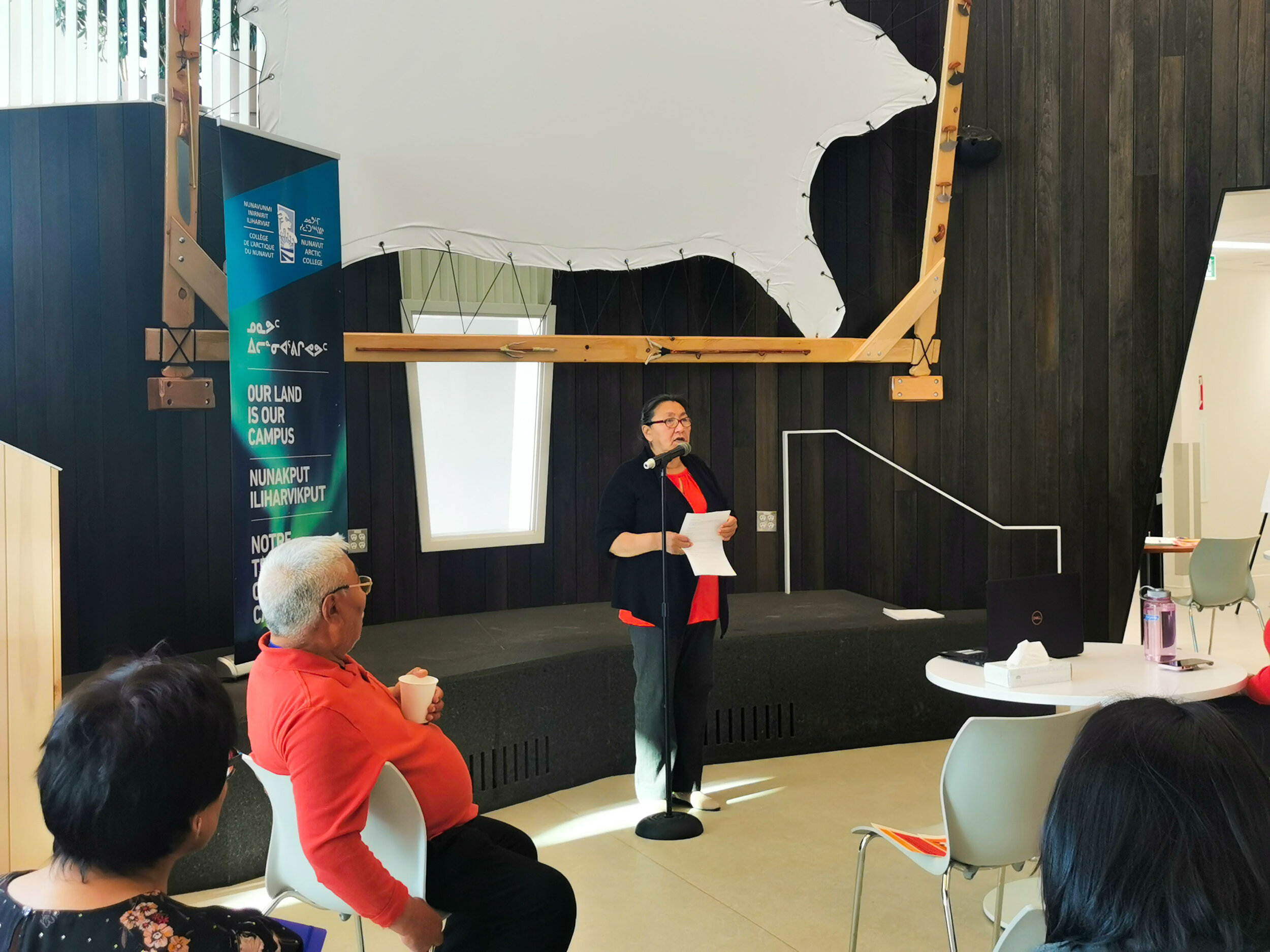
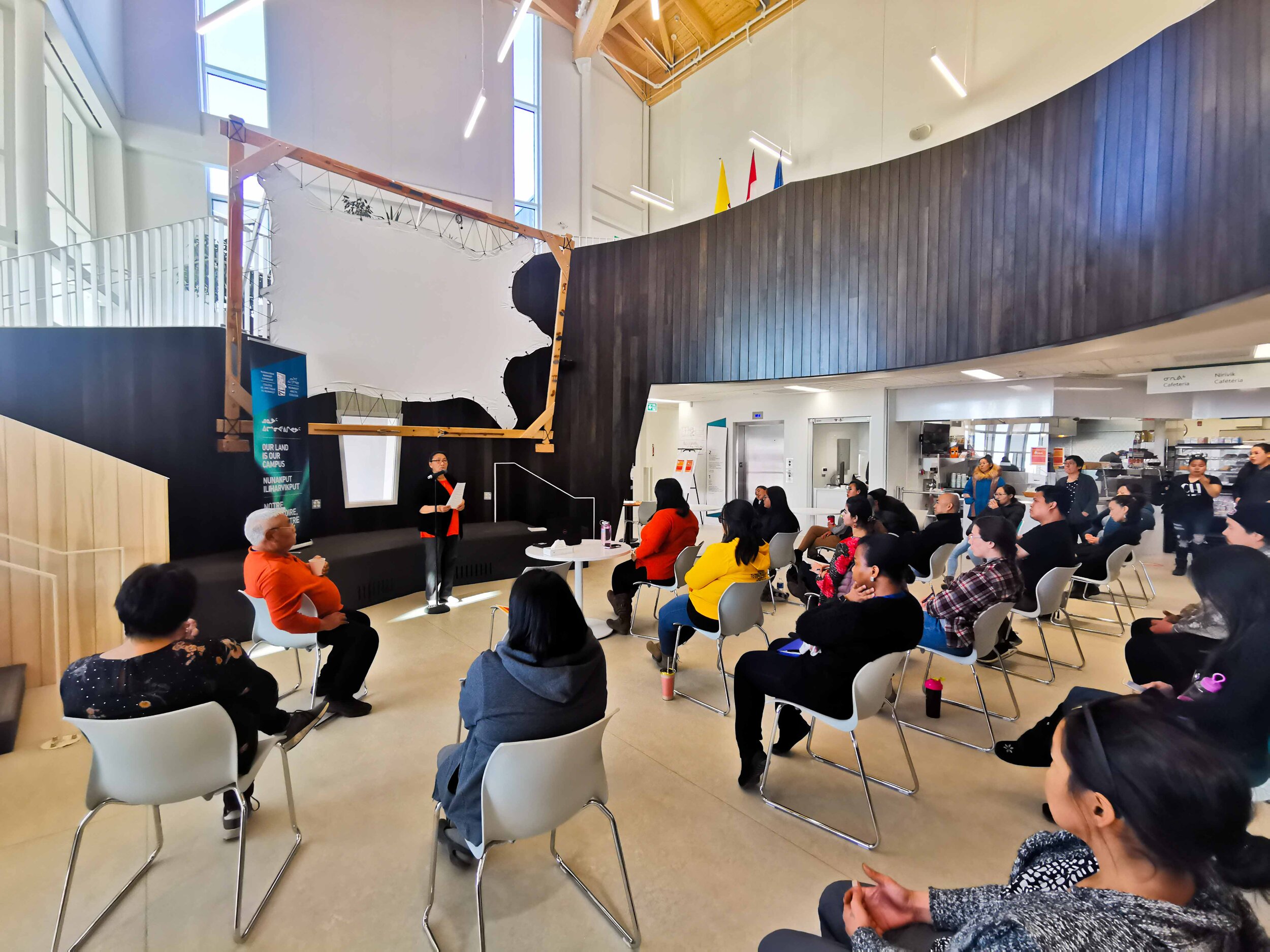
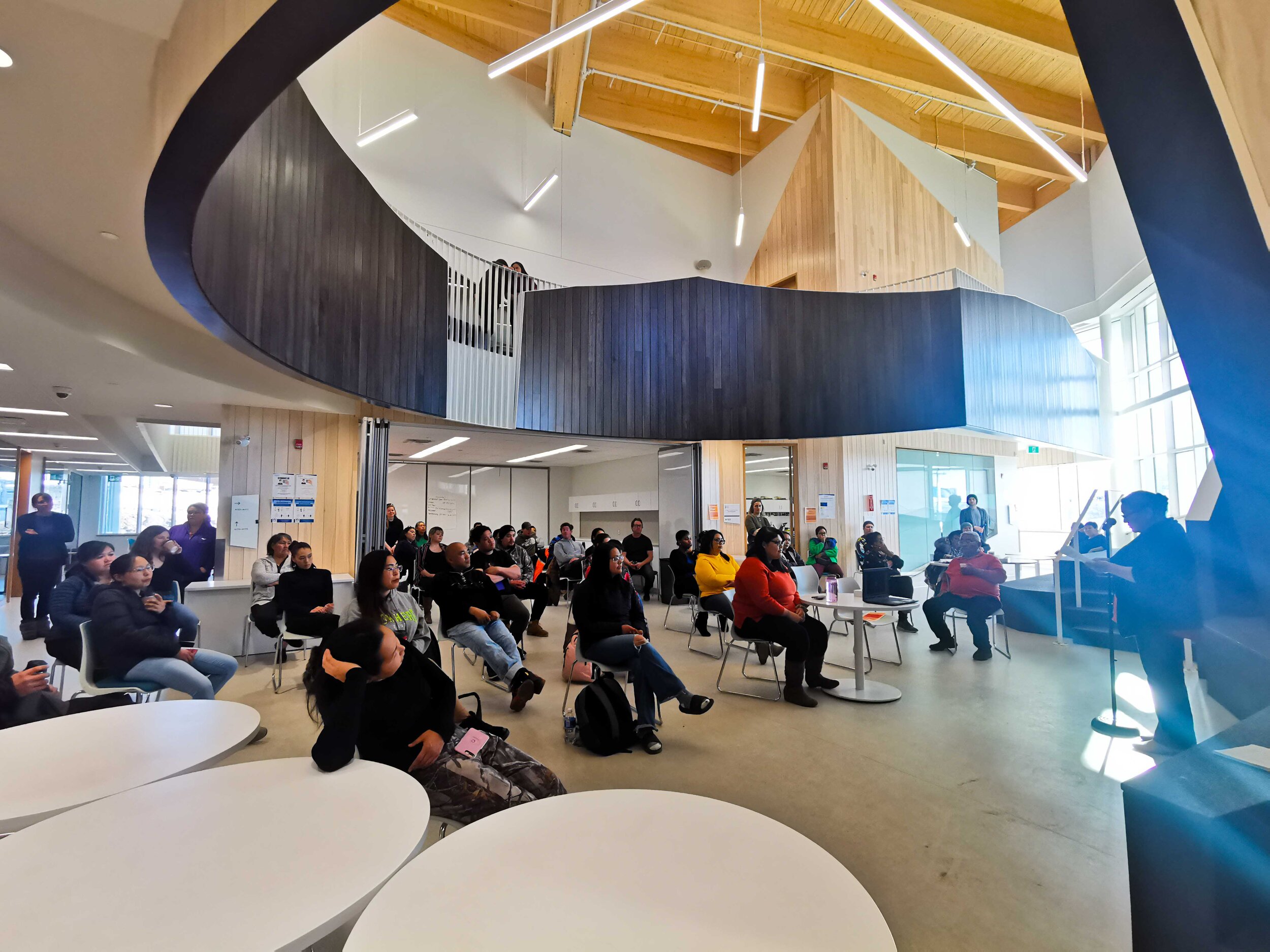
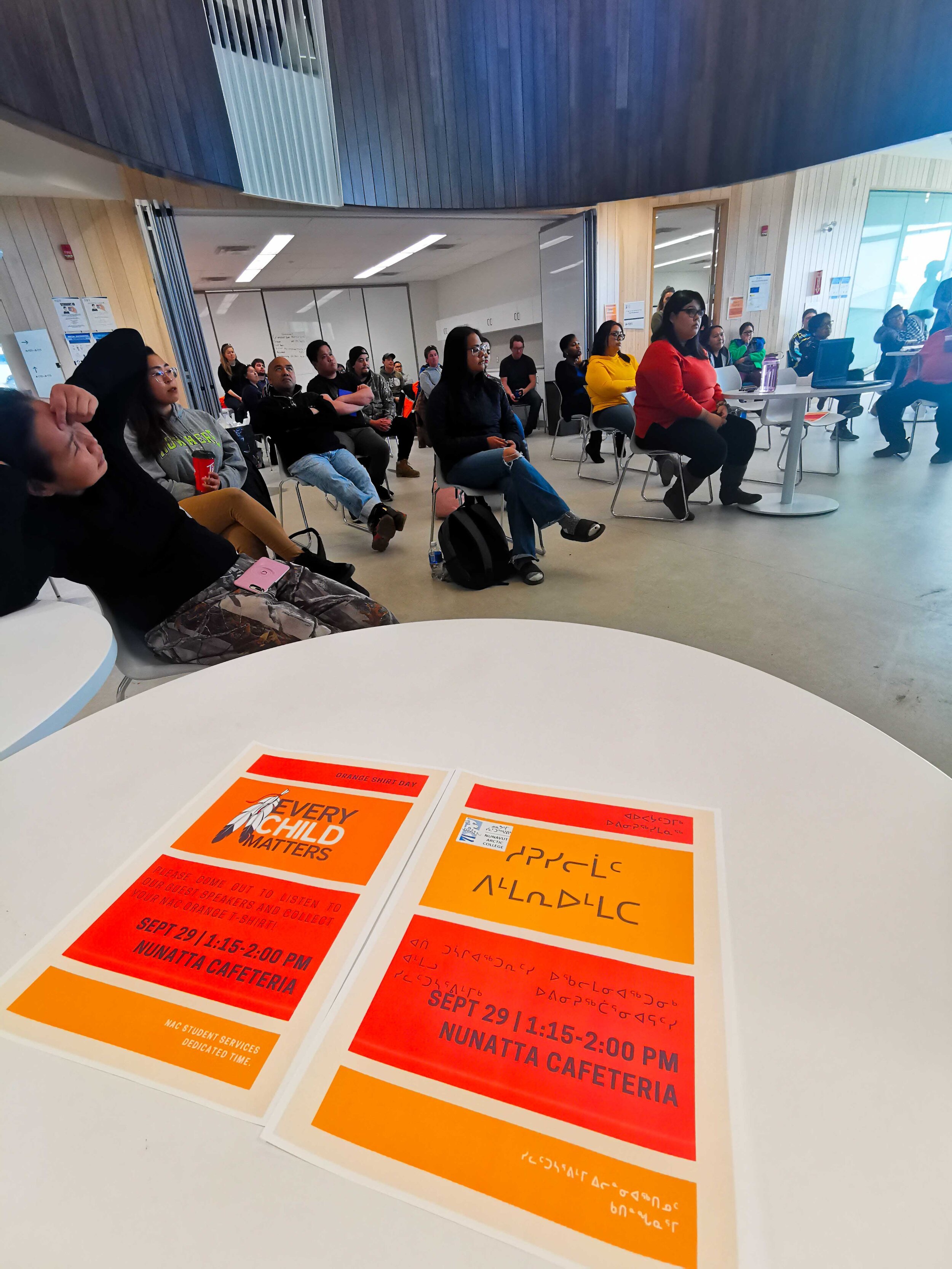
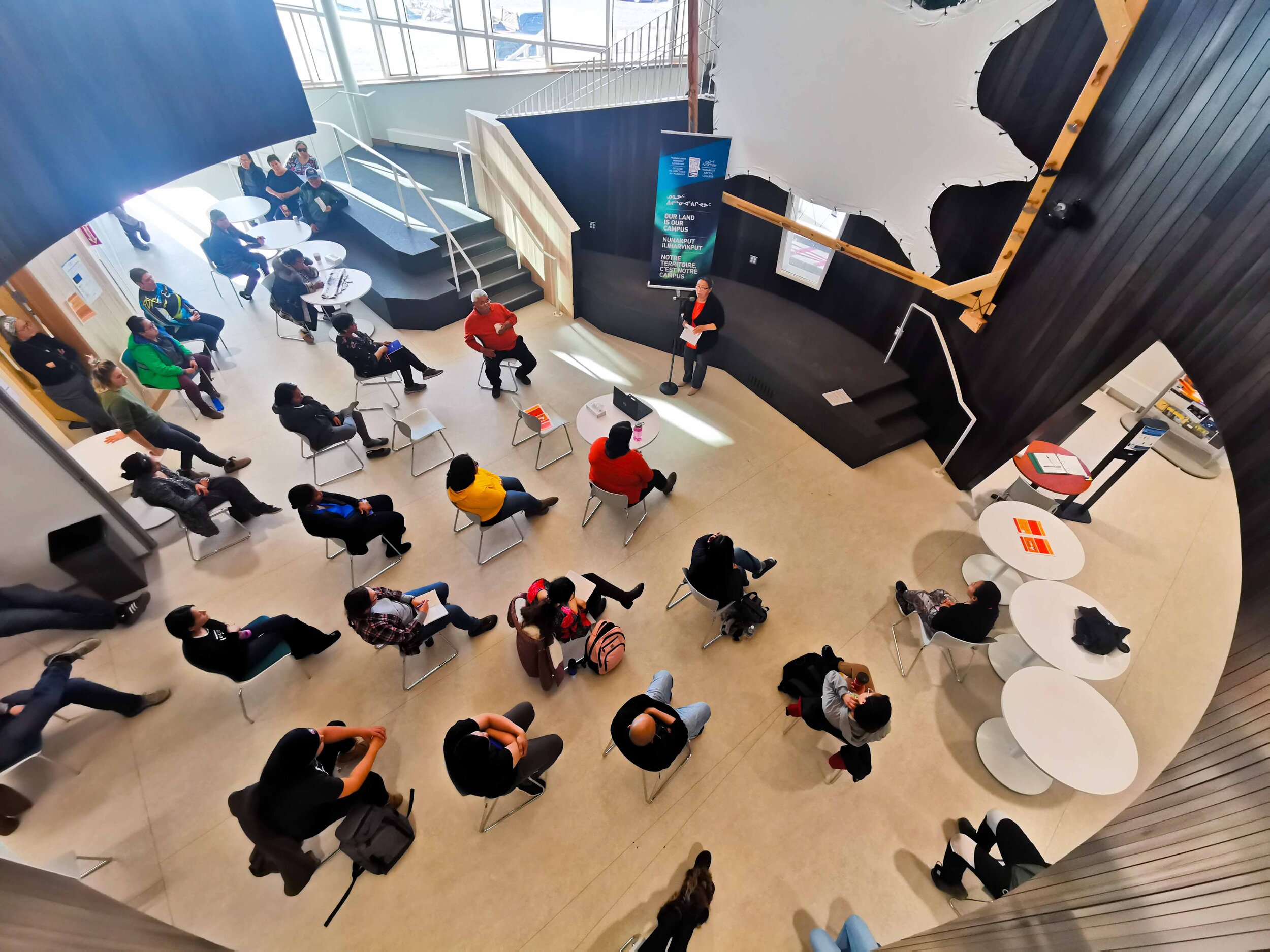
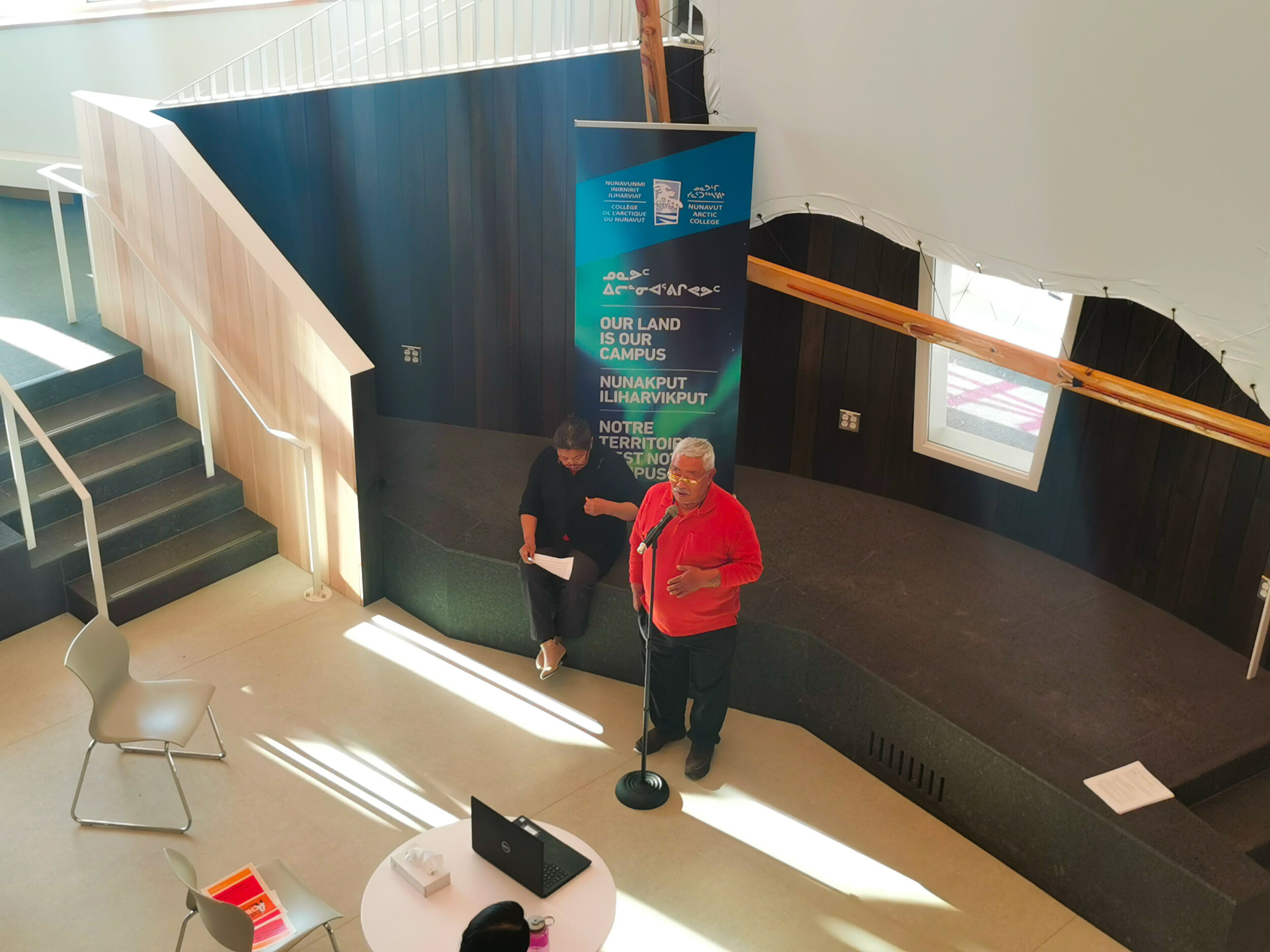
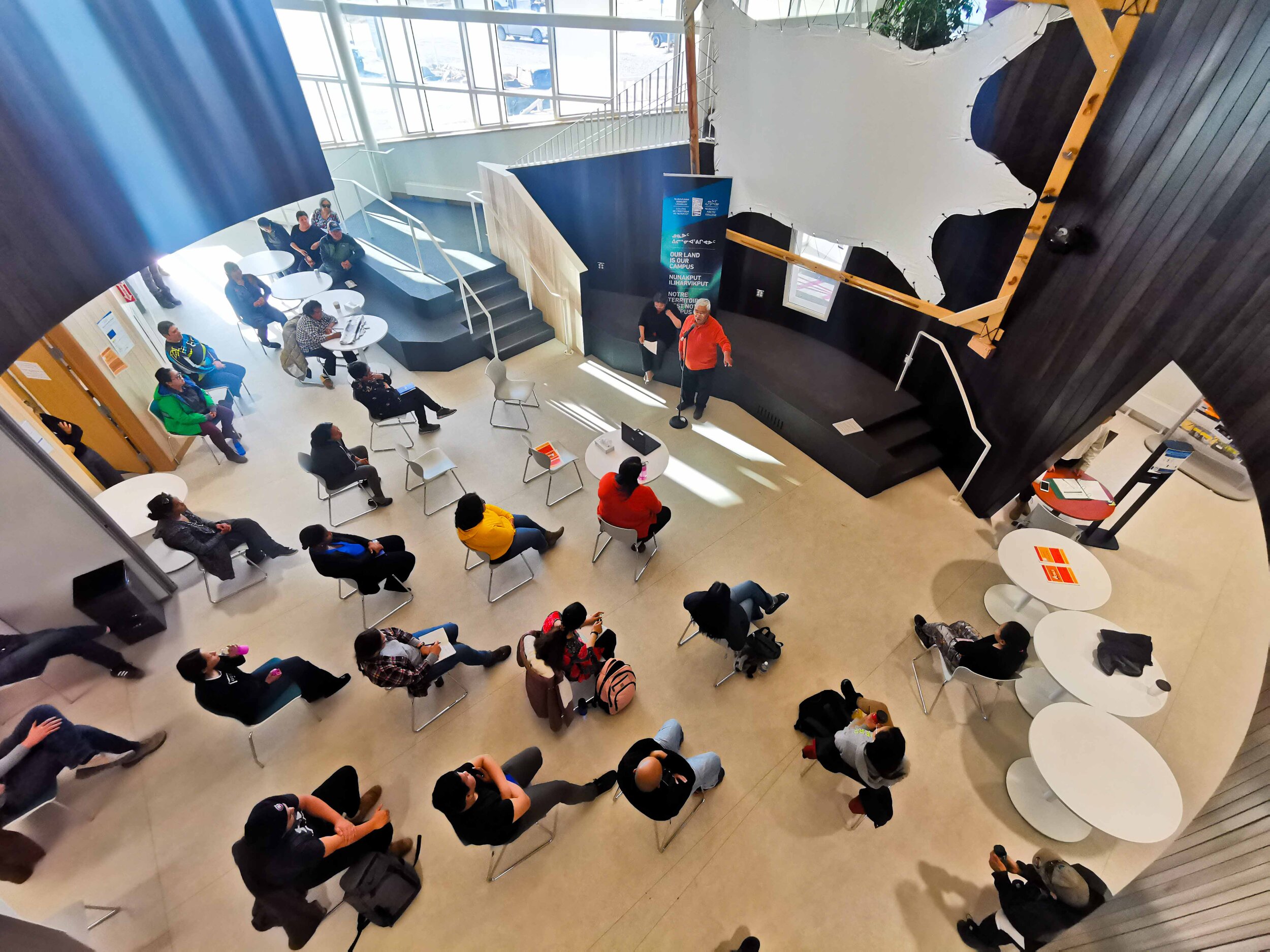
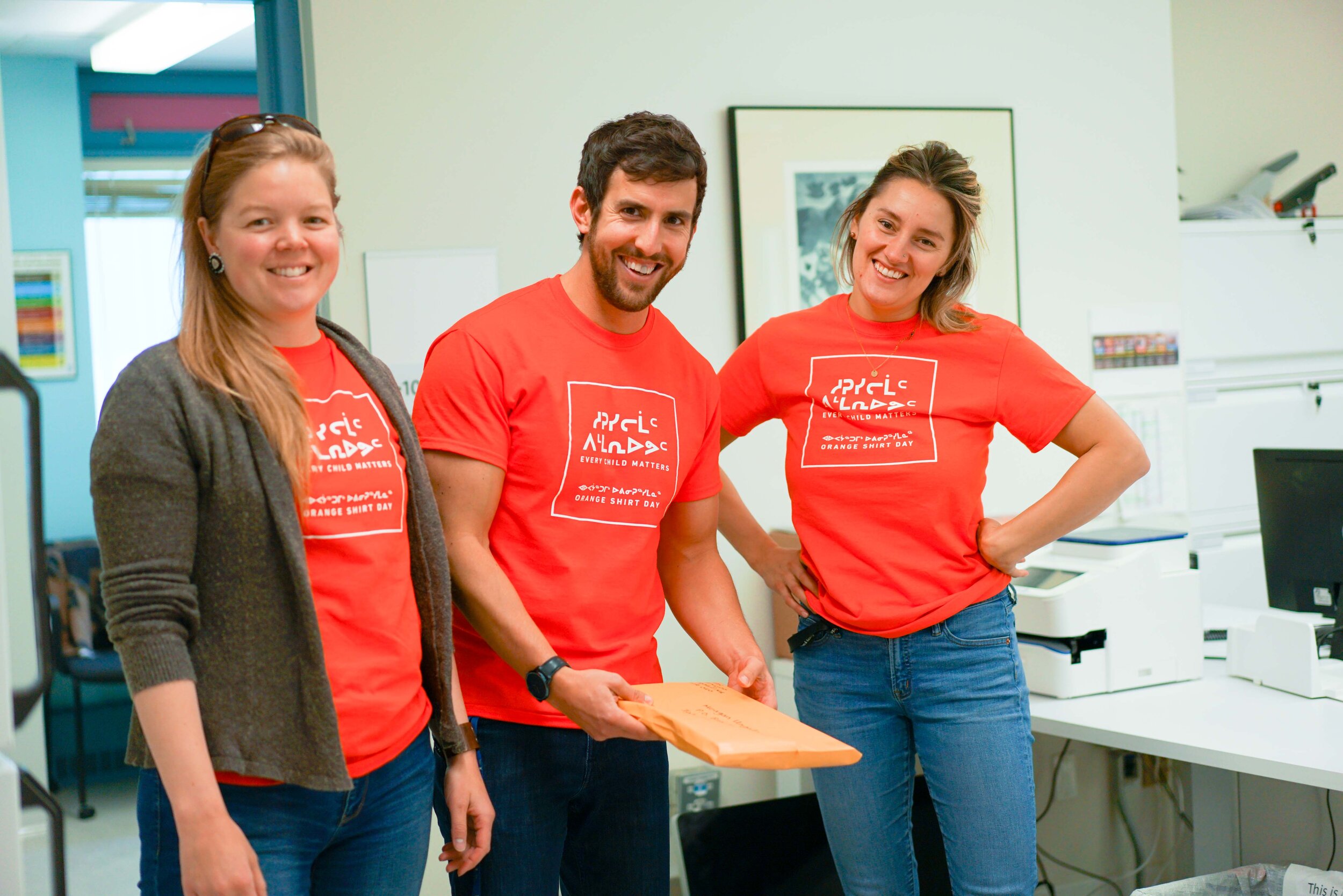
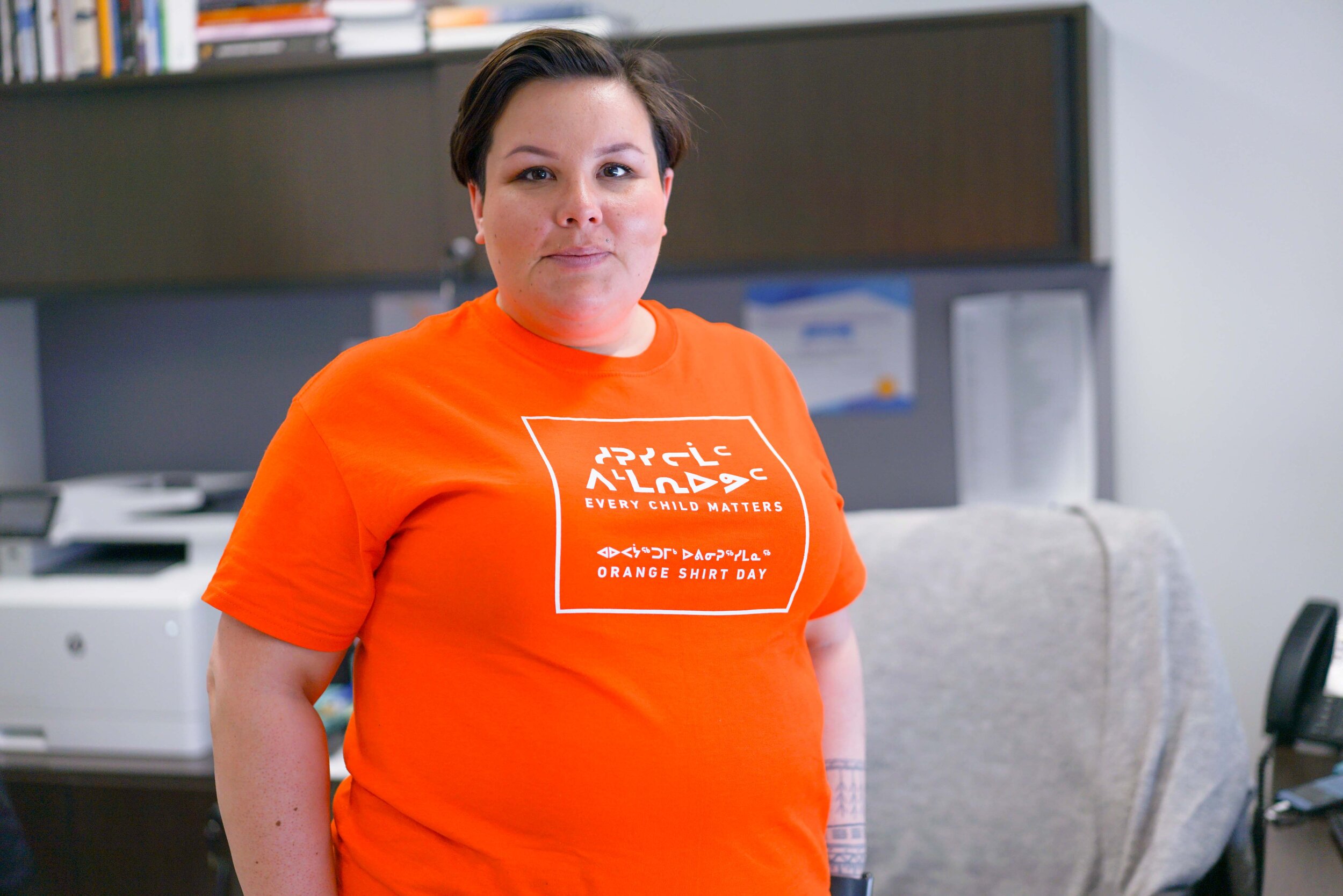
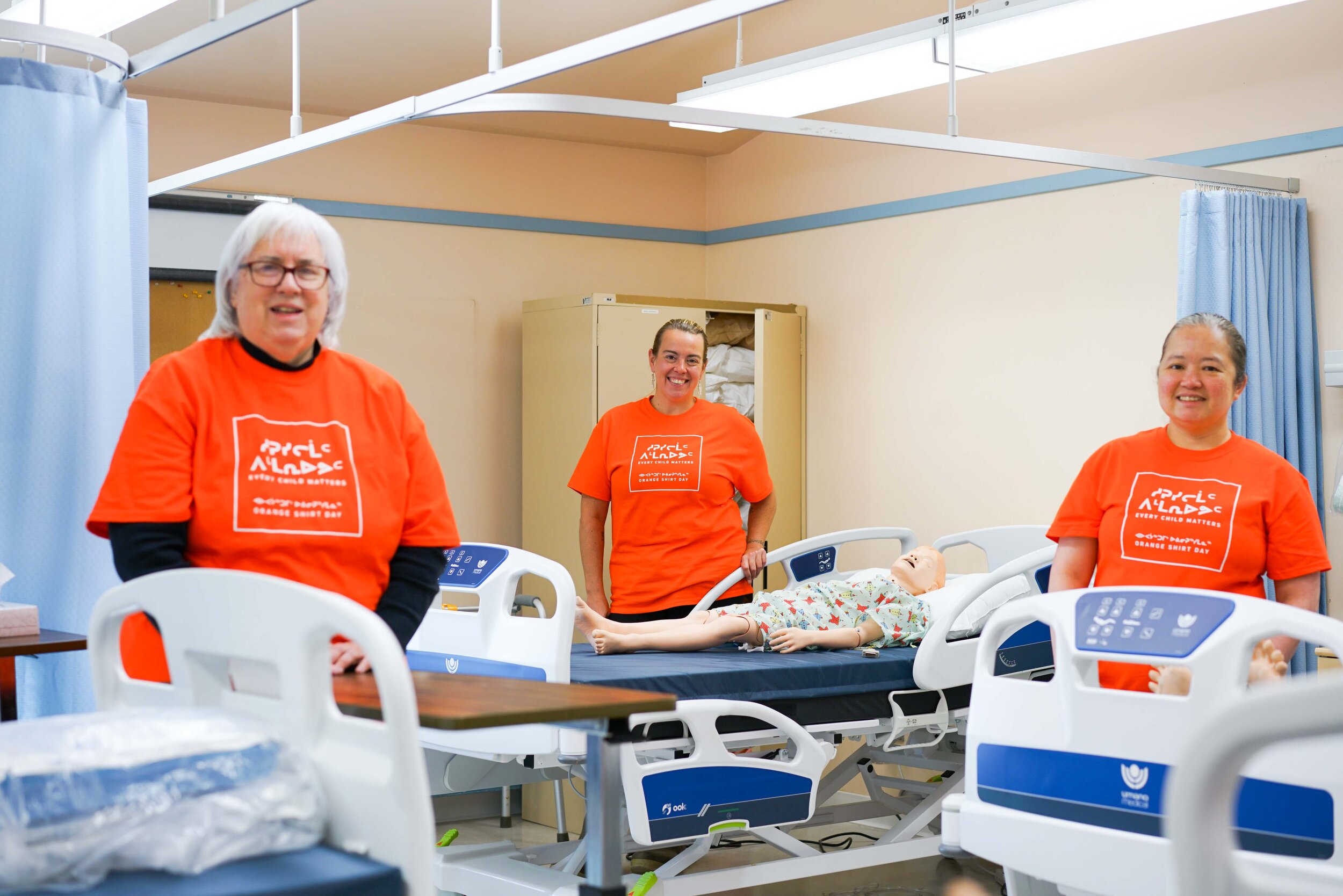
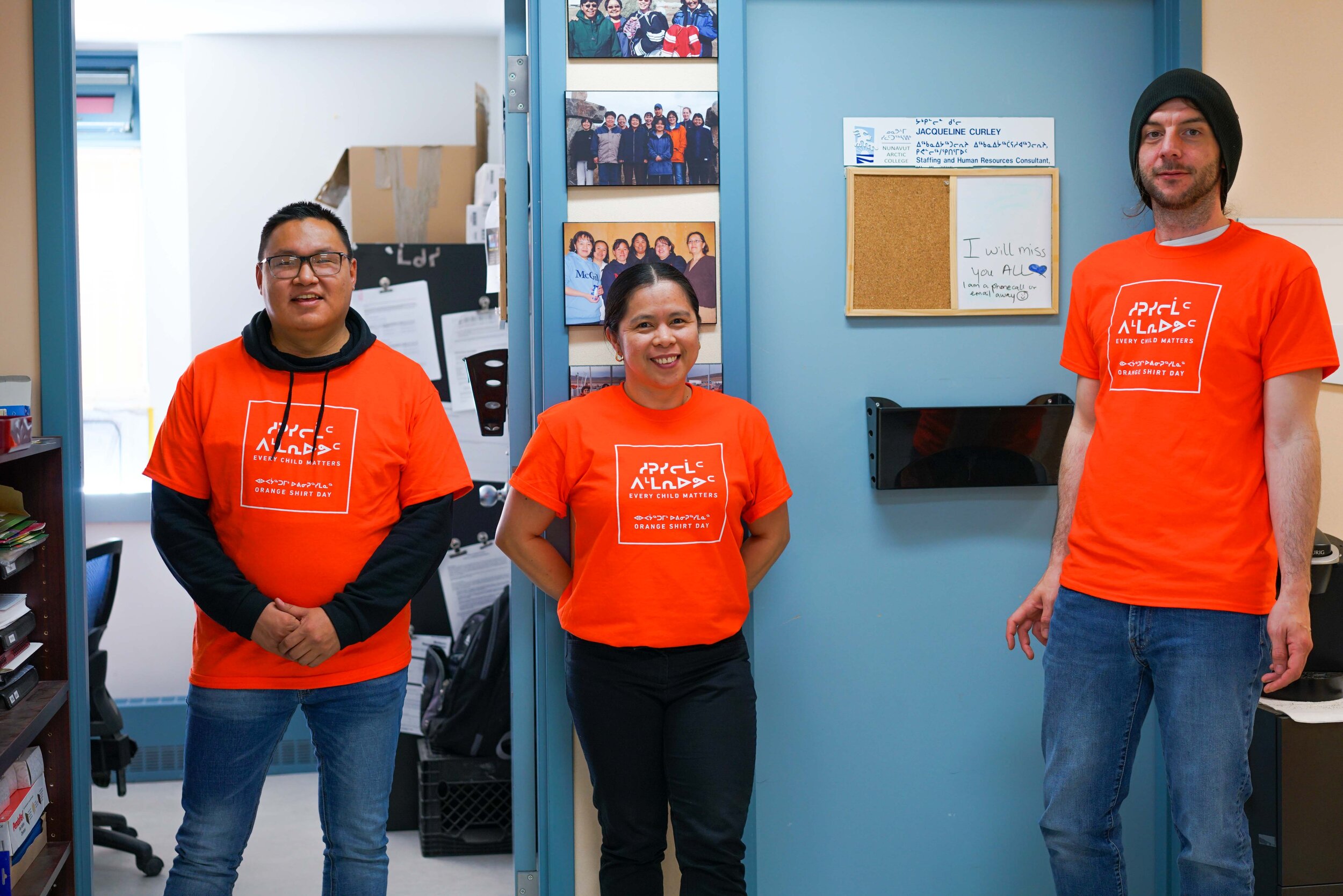
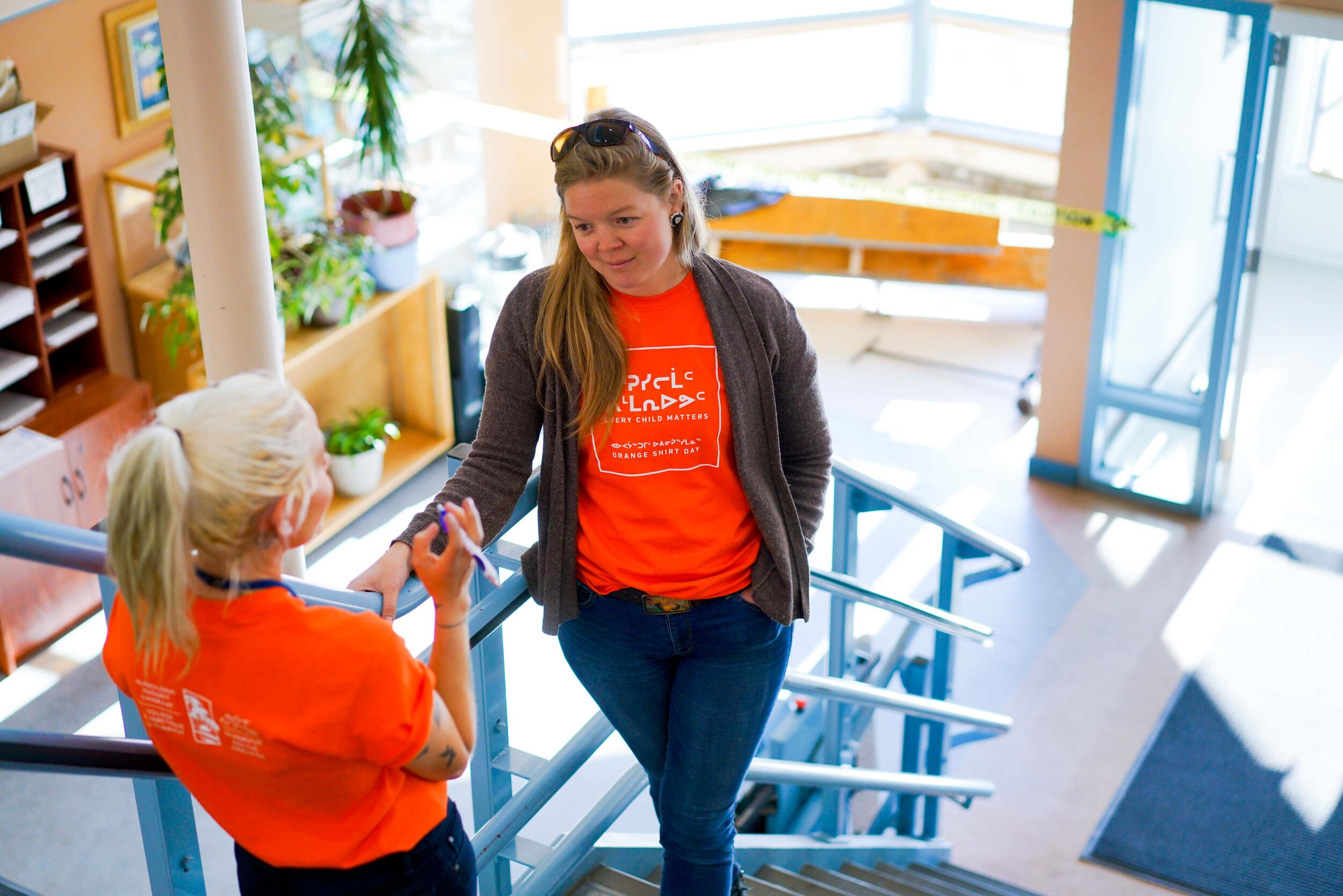
September 30th marks the annual Orange Shirt Day in recognition of the Canadian residential school system experience, to witness and honour the healing journey of the survivors and their families, and to commit to the ongoing process of reconciliation. Nunavut Arctic College held its own Orange Shirt Day commemoration. The staff and faculty congregated in solidarity with Nunavut’s survivors at the Nunatta Campus’ Cafeteria.
Peesee Pitsiulak, Dean of Education, University, and Inuit Studies, opened the assembly by sharing the story of how Orange Shirt Day came to be; Phyllis Webstad, from Stswecem’c Xgat’tem First Nation, was forced to attend a Mission School. Phyllis was excited to attend for the first time, and chose to wear a brand new orange shirt. Upon arrival at the school, she was stripped of her clothes and she never saw that orange shirt again. Phyllis, like so many indigenous and Inuit children, were made to feel like their culture, their languages and their identities did not matter. Decades later, as part of her own healing, Phyllis created Orange Shirt Day as an opportunity for other indigenous people to share their experiences.
Peesee, who grew up on the land near Kimmirut, addressed what federal day schools were like for Inuit across Nunavut, she also spoke about the settlement schools in Chesterfield Inlet and Churchill that families were coerced into sending their children to. Lew Philip, Counsellor (Elder on Campus) at Nunatta campus, spoke next and described his experience being forced to attend a federal day school in northern Qikiqtani. He addressed the family tensions these schools created between Inuit children and their parents; he didn’t want to leave his home on the land, while parents felt pressured by the government to enforce their attendance, not fully aware of the abuse and the devastating affects these schools would have on Inuit culture, language, and traditional knowledge.
Alexina Kublu, who was in attendance, shared her story of being sent down South for medical at three years old, but instead of returning home to her family, she was sent to a Residential School. Being away from home, parents, and siblings for months at a time meant that not only did she lose her childhood, but her parents lost the ability to parent their own children. The intergenerational trauma passed on through individual children’s loss of identity and culture, is a factor contributing to the high suicide rates, prevalence of addiction and mentals issues, and low graduation rates in First Nations and Inuit communities, which is why it is important that NAC students across the territory are able to feel empowered to share their stories and understand that they matter.
While Inuit are still facing the consequences of the residential school system and racial injustice, Lew Philip asked everyone to look around the assembly and recognize the diversity of people and cultures in the room and across NAC’s campuses. NAC’s faculty and students are the reminder that healing is possible when we work together, respect one another, and care for each other.
